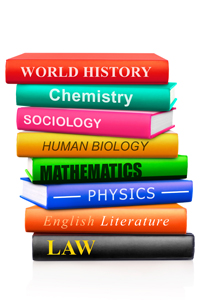One of the core aspects of our platform is providing schools with useful data on student writing performance, aligned to common core standards. Many curriculums also do this; however, they do not clearly and unabashedly align the content of their curriculum to the study of the past and the unique skills that that entails. We prioritize history and historical thinking while also providing schools with necessary data in order to drive student learning forward and provide schools helpful tools to ensure their students are equipped to do well on high stakes state exams. We can do this because the discipline of history is better set up than any other subject for interdisciplinary collaboration.

In our first blog of 2021, I brought up how I would show my students that everything is history. No matter what you are studying, it is history, because everything that is studied happened before this very moment. The different areas of emphasis among historians solidifies this fact. We have historians of science, medicine, religion, math, literature, art, economics, politics, the environment, transportation, and the list could go on… endlessly. History is the study of the past, and depending on one’s framework, that study can take a variety of forms. Due to this, the history classroom is uniquely set up at the level of secondary education to collaborate with any other discipline. It is versatile in its content, allowing for the adaptation of its accompanying skills to any particular field of study. History does not need to fit into a framework like the hard sciences or social sciences. Yet, unfortunately, history is often merely an afterthought in many school curriculums today. It rarely receives the notoriety of STEM or English Language Arts, and because of that, it also receives little funding. This is a travesty for both education and our democracy. It is why creating a “thinking nation,” to us, means emphasizing history education. It is why we want to create a teaching revolution that prioritizes the discipline of history as a core subject.
If we stop seeing history as its own silo of learning, we can expand that teaching revolution beyond history classrooms. If the other subjects taught at schools see history as the perfect partnering subject, no matter the content, not only will students better understand the context of any content area, they will be stronger thinkers and writers, applying the analytical skills fundamental to history to all of their subjects. The result? Empowered students and citizens, ready and equipped to make our future better.
When we see history as the bridge that connects all content areas, we can create more robust and rigorous educational atmospheres. Interdisciplinary collaboration is a powerful tool for teachers to provide the education our students need. We hope that by centering history and writing as the foundation of our curriculum and platform, we can come along schools to provide them the tools needed to equip students and cultivate citizens.